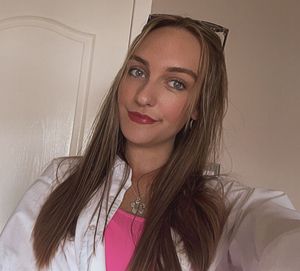39004287
Cow Management + Production
Description
No tags specified
Resource summary
Question 1
Question
[blank_start]85[blank_end]-[blank_start]90[blank_end]% of revenue in dairy farms is from the milk sales
[blank_start]50[blank_end]-[blank_start]80[blank_end]% of the variation in income from milk sales is due to reproductive management.
Answer
-
85
-
90
-
50
-
80
Question 2
Question
Most methods of income on a diary farm rely on what?
Answer
-
The farmer being able to administer drugs successfully
-
The farmer successfully monitoring BCS
-
A successful pregnancy
-
The lactation of the cow
Question 3
Question
T/F: the key between high and low-income dairy farmers is a higher rate of pregnancy
Answer
- True
- False
Question 4
Question
Marginal cost of production = what is the [blank_start]cost[blank_end] of [blank_start]1 extra unit of production.[blank_end] In this case it is just the feed cost.
Answer
-
cost
-
1 extra unit of production.
Question 5
Question
What does having a higher rate of production do for a farmer in terms of profit-making?
Answer
-
Dilute the fixed costs
-
Dilute the variable costs
-
Decrease the marginal cost of production
-
Erase the variable costs
Question 6
Question
T/F: in order to fix a problem with the biology of the cow (it is ill) you should look for better opportunities to get to a new profit level
Answer
- True
- False
Question 7
Question
When is the cow making profit for the farmer?
Answer
-
in the dry period
-
First 170 days of lactation
-
First 50 days of lactation
-
From 150 - 250 days after calving
Question 8
Question
T/F: you will have greater profit if you shorten the calving interval and return cows to calving quicker than before
Answer
- True
- False
Question 9
Question
What is true about the BCS in dairy cows?
Answer
-
It should remain roughly the same throughout the entire year
-
Having large changes in BCS will prolong the calving interval
-
Very thin cows will struggle to get into heat, and very heavy cows have a normal heat cycle
-
Fat cows have higher chance of metritis and fatty liver
-
Thin cows are a result of poor feeding, fat cows are not
-
First ovulation is greatly determined by BCS and important as the sooner the first ovulation happens the more likely they are to be in calf by 100 days in milk.
Question 10
Question
Looking for a lactation curve that peaks at [blank_start]6[blank_end]-[blank_start]8[blank_end] weeks and maintains that for another [blank_start]6[blank_end]-[blank_start]8[blank_end] weeks. (then start to drop at [blank_start]2.2[blank_end]% per week)
Answer
-
6
-
8
-
6
-
8
-
2.2
Question 11
Question
The voluntary waiting period is the time after calving when not wanting the cow to be in calf/ mated
How long is it usually?
Answer
-
40-50 days
-
70-80 days
-
20-30 days
-
14-28 days
Question 12
Question
T/F: culling is an expense
Answer
- True
- False
Question 13
Question
The following are all measures for cow comfort but which is the most useful
Answer
-
Lying index (number lying cows Vs total in pen)
-
Free-stall use index (number of cows lying minus those not eating/drinking )
-
Cow comfort index (lying Vs lying and standing)
Want to create your own Quizzes for free with GoConqr? Learn more.

